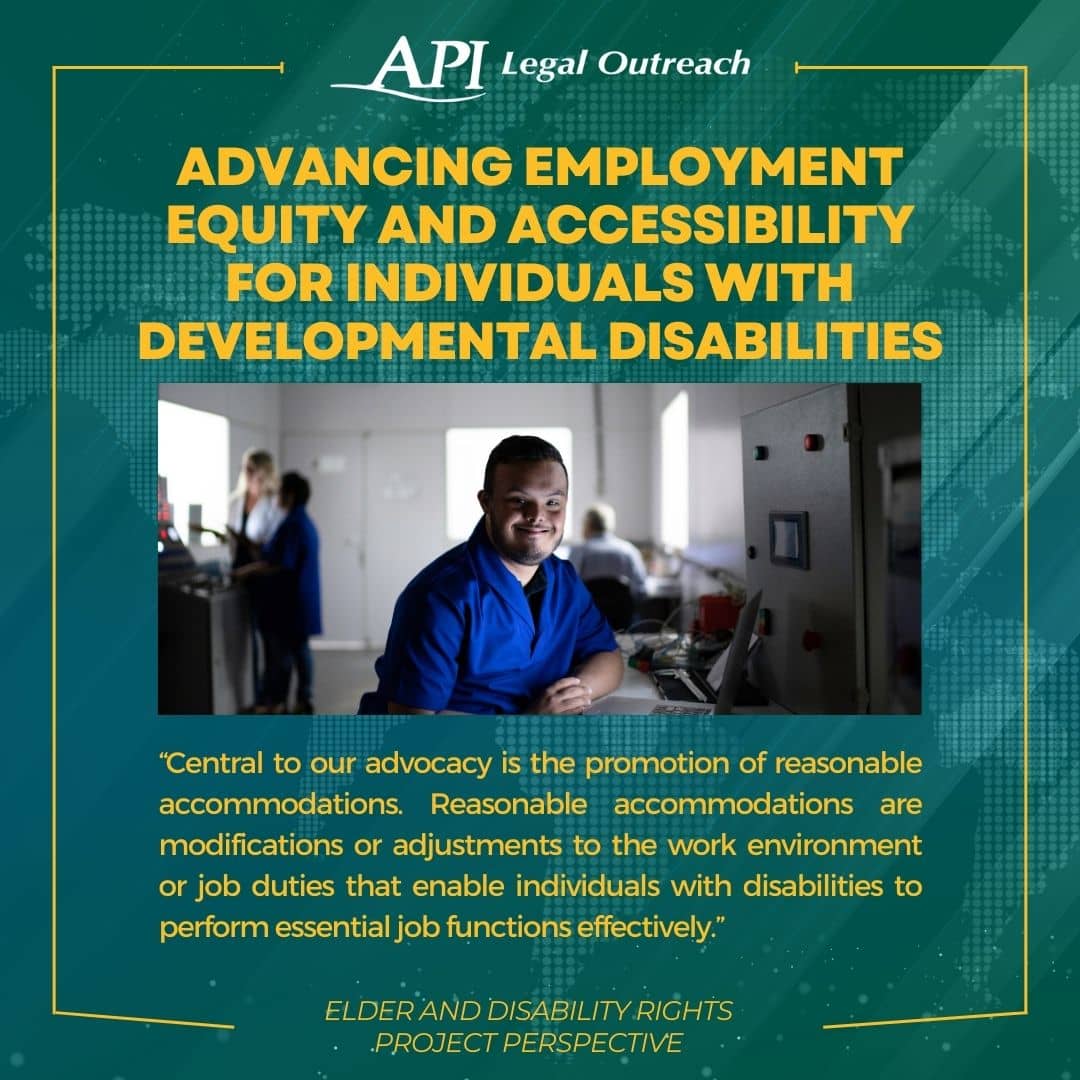Advancing Employment Equity and Accessibility for Individuals with Developmental Disabilities
 Employment stands as a fundamental pillar of independence and self-sufficiency in society. For individuals with developmental disabilities, securing meaningful employment not only provides financial stability but also fosters a sense of purpose, inclusion, and contribution to the community. As professionals engaged in legal, social work, and case management roles, it is incumbent upon us to champion employment equity and accessibility for this marginalized population.
Employment stands as a fundamental pillar of independence and self-sufficiency in society. For individuals with developmental disabilities, securing meaningful employment not only provides financial stability but also fosters a sense of purpose, inclusion, and contribution to the community. As professionals engaged in legal, social work, and case management roles, it is incumbent upon us to champion employment equity and accessibility for this marginalized population.
Navigating the intricate landscape of disability discrimination laws constitutes a critical aspect of our advocacy efforts. The Americans with Disabilities Act (ADA) and its counterparts worldwide offer vital protections against discrimination in various aspects of life, including employment. It is imperative that we remain abreast of these laws and regulations to ensure the rights of individuals with developmental disabilities are upheld in the workplace.
Central to our advocacy is the promotion of reasonable accommodations. Reasonable accommodations are modifications or adjustments to the work environment or job duties that enable individuals with disabilities to perform essential job functions effectively. These accommodations may range from flexible scheduling and adaptive equipment to modified training methods and accessible workspaces. By advocating for the implementation of reasonable accommodations, we facilitate the integration of individuals with developmental disabilities into the workforce on an equal footing with their peers.
Furthermore, fostering inclusive hiring practices within our respective fields is paramount to dismantling barriers to employment. Too often, individuals with developmental disabilities encounter systemic biases and preconceptions that impede their access to employment opportunities. As advocates, we must challenge these prejudices and work collaboratively with employers to cultivate diverse and inclusive workplaces.
Education and awareness play pivotal roles in promoting employment equity and accessibility. By engaging in outreach efforts, training sessions, and informational campaigns, we can increase understanding and acceptance of individuals with developmental disabilities in the workplace. Additionally, forging partnerships with disability advocacy organizations and community resources enhances our capacity to effect meaningful change and empower individuals with disabilities to pursue their professional aspirations.
It is essential to recognize the intersectionality of disability with other forms of marginalization, such as race, gender, and socioeconomic status. Individuals with developmental disabilities who belong to marginalized communities often face compounded barriers to employment and encounter intersecting forms of discrimination. As advocates, we must adopt an intersectional approach that acknowledges and addresses the complex dynamics of oppression that shape the lived experiences of our clients.
In conclusion, the pursuit of employment equity and accessibility for individuals with developmental disabilities is not merely a moral imperative but a legal and social obligation. As professionals working in legal, social work, and case management capacities, we possess a unique platform to effect positive change and advance the rights and dignity of individuals with disabilities in the workforce. Through our collective advocacy efforts, we can create a more inclusive and equitable society where every individual has the opportunity to thrive and contribute to the fabric of our communities.
About the APILO’s Elder and Disability Rights Project:
APILO’s Elder and Disability Rights Project provides legal services in a variety of areas to assist elders and individuals with disabilities to receive public benefits and live a life free from abuse. The Elder Team works to both to prevent abuse towards elders and people with disabilities and to assist survivors of abuse. We work closely with senior centers, churches, and senior meal sites to keep our services accessible. With a team of exemplary attorneys and dedicated staff, the team provides a wide range of legal services, including naturalization assistance, other immigration cases, elder abuse, estate planning, eviction defense, conservatorship, guardianship, and restraining orders to name a few. If you want to learn more about what our team does, please feel free to reach out to us.
Resources: (1) ada.gov, (2) eeoc.gov, (3) dol.gov, (4) hhs.gov






